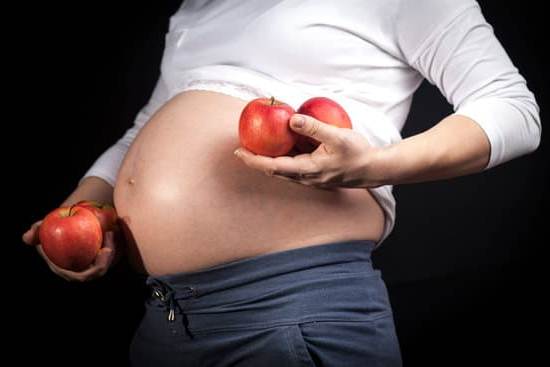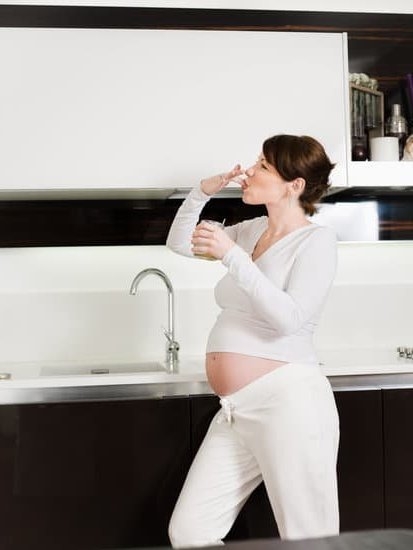Are you wondering, “is peeing a lot a sign of pregnancy?” As an expecting mother, it’s important to understand the various symptoms that you may experience during pregnancy. From morning sickness to mood swings, the signs of pregnancy can vary from woman to woman. One common symptom that many pregnant women experience is frequent urination, which can often raise questions about its relation to pregnancy.
During the early stages of pregnancy, it’s crucial to be aware of the signs that could indicate a possible pregnancy. This includes paying attention to physical changes, such as breast tenderness and morning sickness, as well as changes in your bathroom habits. Understanding how these symptoms relate to your body’s changes during pregnancy is essential for every expecting mother.
Frequent urination is one of the early signs of pregnancy that many women may overlook or dismiss as a normal bodily function. However, the truth behind whether peeing a lot is a sign of pregnancy lies in the science and hormonal changes that occur within the body. By understanding the physiological reasons behind frequent urination during early pregnancy, expecting mothers can better manage this common symptom and know when it may warrant medical attention.
Early Signs of Pregnancy
Experiencing frequent urination is a common sign of early pregnancy and can be one of the earliest symptoms that women notice. It is important for expecting mothers to understand the early signs of pregnancy, including the changes in bladder function that may occur. Here are some key things to look out for:
- Increased Frequency: One of the most common signs of pregnancy is having to urinate more often than usual, even during the early stages. This increase in frequency can be attributed to hormonal changes and increased blood flow to the pelvic area.
- Sudden Urges: Pregnant women may also experience sudden urges to urinate, even if their bladders are not full. This can be disruptive and inconvenient, especially during everyday activities or at night.
- Difficulty Holding Urine: Some women may find it challenging to hold their urine for as long as they used to before becoming pregnant. This can lead to occasional leaks or accidents, particularly when there is added pressure on the bladder.
The occurrence of frequent urination in early pregnancy is mainly due to hormonal changes and increased blood flow, leading to an increased amount of urine being produced. The hormone human chorionic gonadotropin (hCG), which is produced by the placenta, can also contribute to frequent urination by causing the bladder muscles to relax.
Furthermore, as the uterus expands and puts pressure on the bladder, it reduces its capacity and makes pregnant women feel like they need to empty it more frequently. Understanding these physiological changes can help expecting mothers cope with this symptom and seek appropriate support if needed.
Is Peeing a Lot a Sign of Pregnancy
Pregnancy can bring about numerous physical changes, some of which might come as a surprise to expecting mothers. One common question that many women have is: “Is peeing a lot a sign of pregnancy?” The truth is that frequent urination is indeed a common symptom of early pregnancy. It can occur as early as the first few weeks after conception, and is often one of the first signs that a woman may be pregnant.
There are several physiological reasons behind why frequent urination is a common symptom of pregnancy. The body goes through significant hormonal changes during pregnancy, particularly with the increase in levels of hormones such as human chorionic gonadotropin (hCG) and progesterone.
These hormonal changes lead to an increase in blood flow to the pelvic area, which can lead to additional pressure on the bladder. Additionally, the growing uterus puts pressure on the bladder as it expands, further contributing to the need for more frequent trips to the bathroom.
How can expecting mothers manage this common symptom? Here are some tips for managing frequent urination during pregnancy:
- Stay hydrated: While it might seem counterintuitive, staying hydrated can actually help reduce irritation in the bladder and decrease the urge to urinate frequently.
- Practice pelvic floor exercises: Strengthening the pelvic floor muscles through exercises such as Kegels can help improve bladder control and reduce urgency.
- Empty your bladder completely: When visiting the restroom, make sure to empty your bladder fully to minimize future trips.
- Limit caffeine intake: Caffeine can act as a diuretic, increasing urine production and exacerbating the need for frequent urination.
By understanding that frequent urination is indeed a sign of pregnancy and learning how to manage this symptom, expecting mothers can navigate through this aspect of their journey towards motherhood with greater ease. However, it’s important for women to also be aware that if excessive or painful urination occurs at any point during their pregnancy, it is essential to seek medical attention promptly to rule out any potential complications.
The Science Behind Frequent Urination in Early Pregnancy
During early pregnancy, many women experience frequent urination as one of the first signs of being pregnant. This symptom can be attributed to several biological factors and changes in the body. Understanding the science behind frequent urination during early pregnancy can help expecting mothers better manage this common symptom.
Increased Blood Flow to the Pelvic Area
One of the main reasons for frequent urination in early pregnancy is the increased blood flow to the pelvic area. As the body prepares for pregnancy, the uterus begins to expand and puts pressure on the bladder. This pressure can result in a decreased bladder capacity and an increased frequency of urination.
Hormonal Changes
Hormonal changes, specifically an increase in progesterone levels, also play a significant role in causing frequent urination during early pregnancy. Progesterone relaxes the muscles in the urinary tract and can lead to more frequent trips to the bathroom. Additionally, hormonal changes can also affect kidney function, leading to an increase in urine production.
Fluid Retention
During pregnancy, it is common for women to experience fluid retention due to hormonal changes and an increase in blood volume. This extra fluid circulates through the body and eventually ends up in the bladder, causing a feeling of fullness and resulting in more frequent urination.
Understanding these scientific factors behind frequent urination during early pregnancy is essential for expecting mothers as they navigate this symptom throughout their pregnancy journey.
How Hormonal Changes Can Impact Bladder Function
Pregnancy brings about a lot of changes in a woman’s body, and hormonal fluctuations play a significant role in these transformations. One of the effects of these hormonal changes is an impact on bladder function, which can lead to frequent urination. This symptom is often one of the earliest signs of pregnancy, and many women experience it as soon as one week after conception.
The hormone hCG, or human chorionic gonadotropin, is responsible for triggering frequent urination in early pregnancy. This hormone increases blood flow to the pelvic region and kidneys, leading to more efficient removal of waste from the body. Additionally, the growing uterus puts pressure on the bladder, reducing its capacity and causing the need for more frequent trips to the bathroom.
Aside from hormonal changes and physical pressure on the bladder, increased urination during pregnancy can also be attributed to an increase in overall body fluids. During pregnancy, a woman’s blood volume increases significantly in order to support the developing fetus. All these factors combined can result in pregnant women feeling like they need to urinate much more frequently than usual.
| Hormonal Changes Impacting Bladder Function | Increased Blood Flow |
|---|---|
| Hormone hCG triggers frequent urination | More efficient waste removal from body |
| Growing uterus puts pressure on bladder | Reduces bladder capacity |
| Increase in overall body fluids during pregnancy | Blood volume increases to support fetus |
Tips for Managing Frequent Urination During Pregnancy
During early pregnancy, many women experience the symptom of frequent urination. This can be quite bothersome and disruptive to daily life, but there are some tips for managing this common pregnancy symptom.
Stay Hydrated
It may seem counterintuitive, but staying hydrated can actually help manage frequent urination during pregnancy. When you’re well-hydrated, your bladder is more likely to empty completely when you do go to the bathroom, reducing the frequency of trips.
Watch Your Bladder Triggers
Certain beverages and foods can irritate the bladder and make the need to urinate even more urgent. Caffeine, alcohol, and spicy foods are known bladder irritants. By identifying these triggers and avoiding them as much as possible, you may be able to reduce your frequency of urination.
Kegel Exercises
Kegel exercises can help strengthen the pelvic floor muscles, which can improve bladder control. This can be especially helpful during pregnancy when the growing uterus puts extra pressure on the bladder. Regularly practicing Kegel exercises can help decrease the urgency and frequency of urination.
Overall, it’s important for expecting mothers who are experiencing frequent urination to maintain open communication with their healthcare provider. They can provide personalized tips and support for managing this common symptom and ensure that any underlying issues are addressed promptly.
When to See a Doctor
Experiencing frequent urination is common during pregnancy, but there are instances where it could signal a problem that needs medical attention. It is important for expecting mothers to understand when they should seek the advice of a healthcare professional.
If you are pregnant and experiencing excessive urination along with other symptoms such as pain or burning during urination, cloudy or strong-smelling urine, fever, chills, or lower back pain, it could indicate a urinary tract infection (UTI). UTIs are common during pregnancy due to hormonal changes and should be treated promptly to avoid complications.
Another reason to see a doctor if you are peeing a lot during pregnancy is if you notice blood in your urine. Hematuria, or blood in the urine, could be a sign of an underlying issue such as kidney stones or an infection. It is important to rule out any serious conditions that may require medical intervention. Prompt treatment and management of any potential problems can help ensure a healthy pregnancy for both the mother and the baby.
In some cases, frequent urination could also be a sign of gestational diabetes. This type of diabetes occurs during pregnancy and can lead to high levels of sugar in the blood. If left untreated, it can pose risks for both the mother and the baby. Therefore, it is essential to consult with a healthcare provider if you are concerned about your urination frequency and whether it could be related to gestational diabetes.
Conclusion
In conclusion, the frequent urge to urinate is indeed a common sign of pregnancy. The increase in the production of the hormone hCG can lead to an increased flow of blood to the pelvic area, resulting in more urine being produced and therefore, the need for more frequent trips to the bathroom. Understanding that these bodily changes are a normal part of pregnancy can help expecting mothers manage their symptoms with grace and confidence.
It’s important for expecting mothers to be aware of the signs and symptoms of early pregnancy, including frequent urination, so they can seek appropriate medical care if needed. While it may be inconvenient at times, managing frequent urination during pregnancy can be achieved through lifestyle modifications such as staying hydrated, avoiding caffeine, and practicing pelvic floor exercises. Seeking advice from healthcare professionals can also provide valuable support in managing this symptom.
Ultimately, embracing the changes that come with pregnancy, including increased frequency of urination, is an important part of the journey towards motherhood. This period is a time for immense bodily changes which should be celebrated as they signify a new life growing within. Understanding one’s body and seeking proper care when needed will ensure a healthy pregnancy for both mother and child.
Frequently Asked Questions
How Early in Pregnancy Do You Have to Pee a Lot?
In the early stages of pregnancy, many women experience frequent urination due to hormonal changes and increased blood flow to the kidneys. This often begins around 6-8 weeks into the pregnancy and can be one of the first signs of being pregnant.
What Are the Symptoms of Pregnancy in First Week?
The symptoms of pregnancy in the first week can vary from woman to woman, but common signs include fatigue, breast tenderness, nausea or vomiting (often referred to as morning sickness), and heightened sensitivity to smells. Some women may also experience light spotting known as implantation bleeding.
How Early Can You Tell if You Are Pregnant?
It is possible to detect pregnancy as early as 7-10 days past ovulation using a sensitive home pregnancy test. Alternatively, a blood test administered by a healthcare provider can confirm pregnancy even earlier, typically within 6-8 days after conception. However, some women may not receive a positive result until they have missed their period.

Welcome to my fertility blog. This is a space where I will be sharing my experiences as I navigate through the world of fertility treatments, as well as provide information and resources about fertility and pregnancy.





